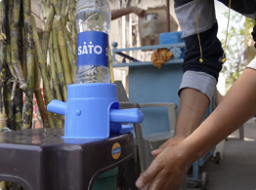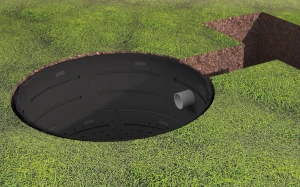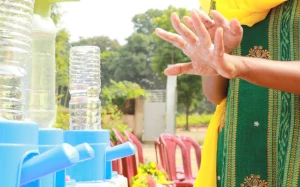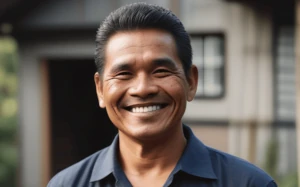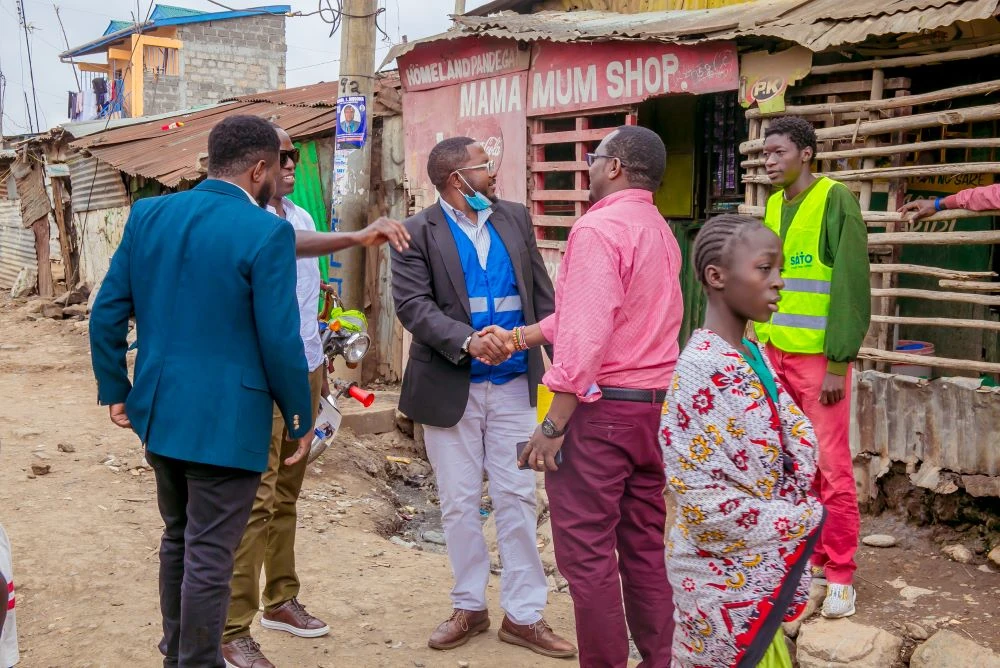
How partner feedback is prompting the Partnership for Better Living to improve public-private WASH sector collaboration
By:
Genevieve Kelly, Program Director, Partnership for Better Living | SATO, a part of LIXIL
Oliver Subasinghe, Policy & Partnerships Advisor | U.S. Agency for International Development (USAID)
The Partnership for Better Living is a five-year cooperative agreement between USAID and LIXIL, through its social brand, SATO. The partnership will develop reliable sanitation supply chains and contribute to SATO’s goal of reaching 100 million people with sanitation and hygiene solutions.
From the moment we launched in late 2021, The Partnership for Better Living (PBL) set out to listen. For us to successfully achieve the partnership’s goals – among them to strengthen the business and enabling environment for sanitation and hygiene access, and to improve the availability of products and the reliability of the sanitation supply chain – we knew we needed to hear from partners, past, present, and even future.
“Partners” in this context included manufacturers of SATO products, NGOs who procured SATO toilets or handwashing solutions for their programs, and leaders of USAID water, sanitation, and hygiene (WASH) projects. In sum, we interviewed five NGOs, three manufacturers, and seven USAID WASH projects. We asked them about their experiences purchasing and then installing SATO products. We inquired about barriers to progress within the sanitation supply chain in general, and specific to SATO. We wondered about their successes, their challenges, and any roadblocks they could identify. We requested their recommendations for improving collaboration between the WASH sector’s public and private interests. We asked. They spoke. And we eagerly listened.
Now one year in to the partnership, PBL is pleased to share our initial lessons with the broader WASH sector. We are also excited to share our action plans for addressing these learnings, as we believe they will strengthen market-based approaches to improved access to sanitation and hygiene.
LESSON #1: DIFFERENT ISN’T ALWAYS BETTER
SATO products are used in a wide range of market contexts and types of projects. In speaking with USAID-funded WASH project leaders, we learned that there is no standard approach for how to engage with SATO for testing or procuring its sanitation and hygiene products for use in program activities. For example, on several occasions, partners mentioned SATO products in their technical approach for USAID activities, but SATO was not aware at the time. When project activities are starting up, then, there is an urgent need for SATO to mobilize inventory to avoid delaying the project. Both SATO and implementing partners now recognize the need for improved communication in advance, particularly with regard to product-market fit, expected demand, and sourcing options. We also recognize the opportunity for SATO to offer guidance based on best practices to help avoid inefficiencies.
How We’re Taking Action: PBL is helping SATO to standardize how best to engage with development sector projects, and sees a critical need to provide more comprehensive resources for USAID implementing partners who seek to work with SATO. We are committed to developing a toolkit to capture best practices, and avoid project leaders having to start from scratch. Tentatively called “Working with SATO: A Guide for USAID Projects,” the toolkit will offer guidance and provide practitioner-led examples of how to engage with SATO over the timeline of a typical five-year USAID activity, including the pre-award phase and during the “gap” when an activity ends and the private sector (or another project) must take its place to sustain the sanitation market. The toolkit will provide standardized mechanisms for forecast reporting to improve efficiency, provide transparency on sourcing and, hopefully, prevent implementation delays. For practitioners that have not worked with SATO before or are entering new geographies, the toolkit will include resources for partners to determine whether SATO is an appropriate solution for their context.
LESSON #2: WE NEED TO TALK
From public and private sector partners, we heard that connecting with each other much more often is not only valuable, but is critical for creating transparency as we work to expand the sanitation supply chain, and for creating awareness at a country level of SATO’s solutions. For example, we learned that manufacturing and distribution partners want to hear about broader sources of demand such as procurement opportunities and supplying products to refugee camps or to NGO projects and activities. NGO partners shared that prior opportunities to convene with the private sector had helped them resolve problems more quickly and effectively, and created greater awareness at their local offices on the range of tools available to them. In-country meetings are sometimes held, but not consistently, and only when there is a dedicated organization to schedule them.
How We’re Taking Action: PBL will support SATO to increase the frequency and scale of dialogues with partners on topics including product-market fit, opportunities for local manufacturers, SATO’s geographic priorities, and SATO’s product development pipeline. Over the next year, PBL will support SATO to coordinate partner forums at the global, regional, and country levels, prioritizing PBL’s current priority markets (Ghana, Guatemala, Indonesia, Liberia, Madagascar, Mozambique, Philippines, and Senegal.) We will offer virtual and/or hybrid opportunities for the public and private sectors to convene, collaborate, educate, and problem-solve together.
LESSON #3: LOCAL. LOCAL. LOCAL.
We heard loud and clear from partners that, in many markets, supply chain barriers for ensuring products are reliably available at an affordable price remain a challenge. SATO already has manufacturing agreements with partners in six locations across Africa and South Asia, supplying the growing portfolio of solutions tailored to specific markets. Strategic expansion of one or two additional local manufacturing, importation, or distribution partners in the near term could enable a more robust sanitation supply chain, reducing risks in timely delivery, minimizing shipping costs, and potentially avoiding the need to navigate trade barriers and policies that could hamper market access. Where local manufacturing partners can be identified and established in a viable business license agreement with sufficient demand for products, this can help SATO’s products remain affordable, especially if production materials can also be sourced locally.
How We’re Taking Action: PBL is supporting SATO to accelerate new manufacturing or distribution partnerships over the next four years. As a first step, the partnership is undertaking research to identify plastics manufacturers and distributors in West Africa, in collaboration with social impact consultancy, Archipel & Co. We are also offering direct support to newly-identified manufacturers in Madagascar and in Southeast Asia, to accelerate their on-boarding and expand the availability of products.
LESSON #4: PLANT SEEDS TO MAXIMIZE GROWTH
While the ways SATO and its partners use sample products may vary, some partners shared their concerns about the risk of market distortion following large-scale donations of products. In new markets, we learned there is still a need for partners to test product acceptance and conduct pilot programs using sample products to build awareness and ‘seed’ demand. We also heard several questions: What is the tipping point at which testing or seeding a market has unintended effects? How should product samples be deployed in a market balancing household and institutional settings to catalyze demand effectively? What is the role of the private sector supplier in providing samples versus the role of project funding in market-based activities? What is the best way to measure success?
Essentially, we learned that we need to learn more.
How We’re Taking Action: PBL is exploring with SATO how best to support and communicate market development options with partners, and the right mix of mechanisms to do so in different settings. Our goal is to provide ourselves and others with best practices and guidelines for how to effectively seed a market with the goal to catalyze long-term, sustainable supply chains. Importantly, we also plan to establish mechanisms to better communicate with partners as they procure and test SATO products to ensure coordinated implementation.
After a year spent listening and learning, USAID and SATO are excited to take these necessary steps to ensure PBL is accelerating access to improved sanitation through better public-private sector collaboration. In addition to the activities outlined above, we also look forward to collaborating with USAID’s WASH PaLS #2 project, ensuring we incorporate their research on rural sanitation market development – and explore ways to maximize it – as we define future activities. Of course, there is more learning and sharing to come, so in the meantime, if you have something to say, we’re still listening.

